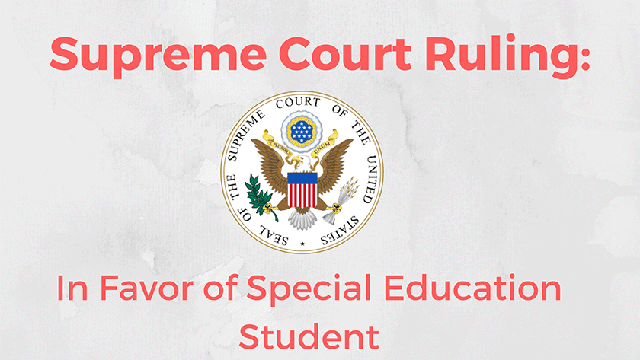BREAKING: Supreme Court Rules For A Special Education Student
Written by Preet Mankad
Published on March 27, 2017
In a ground-breaking decision the Supreme Court last week ruled that school districts must give students with disabilities an opportunity to make “appropriately ambitious” academic progress. For decades the Individuals with Disabilities Education Act (IDEA), the law that governs how schools provide intervention and special education to children with disabilities, has guaranteed a “free, appropriate public education” (aka, FAPE) to all students with disabilities. But the law did not define “appropriate”, leading to the case the Supreme Court ruled on last week. The Court’s decision adds a little stiffening to this previously undefined term, specifying that schools must provide an Individual Education Plan (IEP) that is “appropriately ambitious”.
 What does this mean for a child with a reading, spelling, or writing disorder classified as a Learning Disability and qualified for services under IDEA? The current ruling seems to suggest that IEP goals must be “appropriately ambitious”, but what is meant by “appropriately ambitious” is still subject to interpretation.
What does this mean for a child with a reading, spelling, or writing disorder classified as a Learning Disability and qualified for services under IDEA? The current ruling seems to suggest that IEP goals must be “appropriately ambitious”, but what is meant by “appropriately ambitious” is still subject to interpretation.
Based on 8 years of data with thousands of struggling readers and spellers, Lexercise has set a bar for “ambitious” progress: 90% of children using Lexercise Professional Therapy make at least a year of reading growth in the first 8 weeks. With the data to back it up, we actually guarantee it!
Click here to learn more about Lexercise’s Structured Literacy Curriculum.
References:
By Ipankonin (Vectorized from SVG elements from) [Public domain], via Wikimedia Commons
Improve Your Child’s Reading
Learn more about Lexercise today.
Schedule a FREE
15-minute consultation


